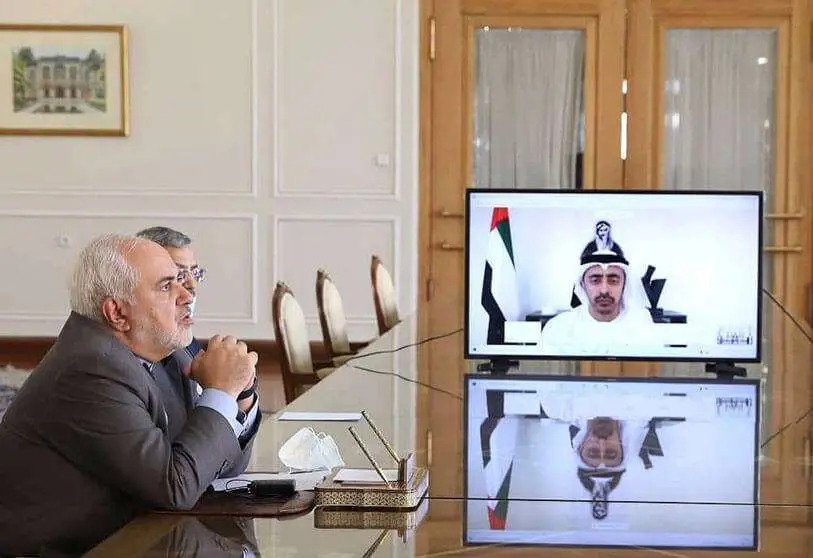Iran and the Emirates: analysis of the new regional scenario

When we analyse relations between Iran and the United Arab Emirates (UAE), "cooperation" does not seem to be an appropriate adjective. Rather, concepts such as "struggle for leadership" in the Middle East, "sectarian confrontation" or attacks through "proxies" emerge. The video conference of 2 August between Javad Zarif, Iran's foreign minister, and Abdullah bin Zayed, his emirate counterpart, in which they discussed bilateral, regional and global cooperation, deserves to be taken into account. The motivation for this "rapprochement" is the result of pragmatic diplomacy and it should be understood that this has not been an isolated action.
We would like to point out the most important facts. In July 2019 the UAE sent signals of reconciliation to Iran by withdrawing a large part of its troops from the Yemeni theatre. There were also meetings at coastguard level to coordinate better on fishing rights, transport across the Straits of Hormuz, illegal crossings and border security. In October there were unconfirmed statements and rumours of the lifting of restrictions by the UAE on Iranian funds valued at $700 million. Also, friendly declarations towards the UAE by Rohaní and other senior Iranian officials. The arrest and deportation to Iran of an Iranian opposition journalist in Dubai can be understood from this perspective. Another episode of this diplomatic strategy on the part of the UAE took place in the context of the COVID-19, with the distribution of 60 tonnes of medical material to Iran. Furthermore, this aid was accompanied by frequent telephone conversations between the leaders of both countries.
An analysis of this rapprochement requires us to abandon the viewpoint of the Sunni-Chinese conflict and reveals a new regional scenario for the following reasons:
- The UAE is engaged in a confrontation with Turkey and Qatar in the conflicts in Libya, Somalia and Syria, either directly or in a "proxy" format. Abu Dhabi understands that fighting on two fronts means multiplying the risks, and therefore seeks reconciliation with Iran. Although Turkey and Qatar are mainly Sunni, like the UAE, the enemies do not respond to a single religious or cultural factor.
- Although relations between the UAE and the United States are magnificent in front of the cameras, the fact is that in Abu Dhabi there is deep apprehension about Washington's intention to withdraw troops from the Middle East, in addition to the operations carried out without consulting its allies, as was the case of Soleimani's assassination in Iraq. The Iranian attacks on oil tankers in the Persian Gulf have gone unanswered, evidencing the blurring of the red lines of the Carter doctrine in the region. The US's allies understand that they will be responsible for its defence.
- The interests of the UAE and Iran partially overlap. In Libya, both are interested in supporting General Khalifa Haftar in his fight against the GNA and Turkey; in Syria, the militias financed by Iran continue to fight against the Turks. Teheran and Abu Dhabi are hoping that Al-Asad will expel Turkey from the province of Idlib in order to participate in the reconstruction of the country. Although the situation may seem contradictory, we will be able to find a certain level of cooperation.
These developments will have an impact on the shaping of regional alliances. For this reason, it remains to be seen how Saudi Arabia, UAE's main ally and Iran's nemesis, will react. We point out three issues that will help assess possible scenarios: first, whether we will witness a new stage in relations between Riyadh and Tehran in the short term; second, whether the "rapprochement" set in motion will worsen relations between Riyadh and Abu Dhabi; and third, what the effect of this alignment of interests will be on the conflicts in Syria and Libya.
Regional alliances also affect Spain's strategic interests, particularly from the point of view of trade, energy supply and maritime traffic, in addition to the effects of possible armed conflicts on our advanced Mediterranean and North African borders.

